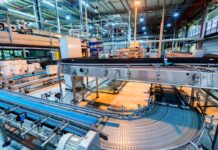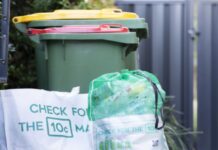Researchers at the University of Adelaide have come up with a way to recycle non-biodegradable plastic bags into a material that has very tiny particles, with the potential to deliver targeted cancer treatments.

According to an ABC report the plastic shopping bags are first blasted in a surface at about 800 degrees Celsius. When the plastic melts it breaks into carbon molecules and when combined with alumina membranes, they form tubes. The process used to make the carbon nanotubes, which are about one-10,000th the width of a human hair, was the idea of PhD student Tariq Altalhi.
Professor Dusan Losic, a teacher of Altahi from the School of Chemical Engineering explained in an ABC report how the carbon nanotubes, have the potential to target cancer cells.
“We’re looking to develop a new approach to put the drug inside this carbon nanotube and modify the special antibodies, so when they’re injected into the body they can find the cancer cell, come into the cell and the drug can be delivered.”
Professor Losic said the method used to recycle the plastic bags is more environment-friendly than other methods, which is also why it is ideal for delivering the cancer treatments.
“Most current methods they’re using carbon sources like methane, propane and some organic solvent and my student came up with the idea of using simple plastic bags,” he said. “All previous methods use a catalyst and that catalyst is found to be toxic.”
“For example, for drug delivery they cannot be used because they have toxic catalysts. Our method doesn’t use any catalysts.”
Professor Losic also enumerated the other valuable uses of the carbon nanotubes in the report.
“They are hundreds of times stronger than steel, they have excellent electrical properties,” he said. “They can be used for new electronic devices, they can be used for solar cells, for batteries.
“They’re also used for making new tennis racquets.”
While the method used to recycle the plastic bags is very efficient, Professor Losic said it does not mean plastic bags won’t end up going to landfills.
“By this technology we can produce much larger quantities of carbon nanotubes by using actually free waste material such as grocery plastic bags. We cannot recycle millions of tonnes but … we are using this base material and making new, very valuable nano material that can be used for many applications,” he said.




















